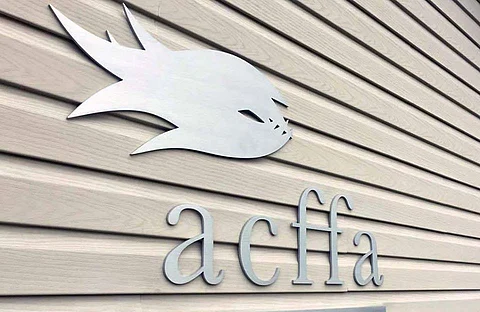

The Atlantic Canada Fish Farmers Association is a not-for-profit industry association representing salmon farmers and related businesses across the region.
Photo: Atlantic Canada Fish Farmers Association.
Following the arrival of Mark Carney as Prime Minister, last week Canada saw changes at the head of portfolios such as Fisheries and Oceans - where Joanne Thompson has taken over from Diane Lebouthillier -, or Rural Economic Development and Minister responsible for the Atlantic Canada Opportunities Agency (ACOA), which has now been placed under the Ministry of Innovation, Science and Industry. However, before her departure, the former head of ACOA, Gudie Hutchings, announced the financial support approved by the former executive for finfish aquaculture in Atlantic Canada.
"Atlantic Canada's aquaculture industry provides thousands of jobs and puts sustainable seafood on tables at home and around the world. By investing in research, training, and global partnerships, your federal government, through ACOA, is making sure this industry keeps growing and creating jobs for years to come," Hutchings stated.
On her behalf, and just a day before being relieved as head of the Ministry and ACOA, Wayne Long, Member of Parliament for Saint John-Rothesay, announced a Government of Canada investment of CAD 473,000 to support the growth and sustainability of the Canadian Atlantic finfish aquaculture industry.
"The salmon farming industry in Atlantic Canada is a powerhouse of economic activity, innovation, and job creation. This investment will help the sector strengthen its global competitiveness while ensuring a sustainable future for aquaculture in our region," Long said.
The initiative, which supports a project of the Atlantic Canada Fish Farmers Association (ACFFA), focuses on industry growth, sustainability, attracting investment, and fostering innovation through industry participation and market diversification.
"Ocean farming is a critical component of Atlantic Canada's sustainable seafood sector. It creates important economic opportunities in rural, coastal communities while producing healthy seafood. Today's announcement underscores its vital role in our region," ACFFA Executive Director Susan Farquharson said for her part, commenting on the announcement.
With more than 2,800 people employed in Atlantic Canada's aquaculture industry and a direct annual economic contribution of over CAD 240 million, this sector is a key economic driver in the region, not only generating jobs but also attracting investment and supporting rural and coastal communities.
To strengthen this industry, ACFFA is leading a two-year project to promote the growth and sustainability of finfish aquaculture, ensuring long-term benefits for the industry and the communities that depend on it.
It will do so through activities such as job skills development, marketing campaigns, and innovation workshops to improve sustainability and increase competitiveness.
This Government of Canada's funding is provided through the Atlantic Canada Opportunities Agency's Regional Economic Growth through Innovation (REGI) program, which helps businesses and non-profit organizations develop a strong, productive, and competitive economy.
In addition, as part of this initiative, the Atlantic Canada Fish Farmers Association will also coordinate a delegation of Atlantic Canada industry representatives to participate in Aqua Nor 2025 in Norway, one of the most important aquaculture trade shows in the world.
It will follow up on the successful participation in Innovation Norway 2024, where key players in Atlantic Canada's industry participated in knowledge exchanges and collaborations to drive advances in the aquaculture sector. According to the Government of Canada's release, the new mission will aim to enable companies in the region to connect with global partners, explore new technologies and attract investment.
This look to other markets across the Atlantic is crucial at a time that - as Canada's new Minister of Fisheries and Oceans, Joanne Thompson, said last week, commenting on her appointment - is a "critical moment" for the country's trade and economy. She was no doubt referring to the crisis caused by U.S. tariffs, given that the U.S. is the largest export market for Canada's seafood sector. Just in 2023, the U.S. imported CAD 4.9 billion worth of Canadian seafood, representing 64% of the total value of the country's seafood exports.
In fact, some Atlantic Canadian provinces, such as Nova Scotia and Newfoundland & Labrador, already anticipated their arrival and, faced with the threat of tariffs, announced as early as February actions aimed at diversifying their markets. Thus, officials of the former undertook a trade mission to Europe, while the government of the latter announced almost CAD 6 million to help its seafood sector access markets in Europe and Asia.
Meanwhile, on the other coast of Canada, in British Columbia, salmon farmers calculated that the U.S. tariffs could reduce demand for B.C. salmon by up to 40%. The difference is that, unlike their Atlantic coast counterparts, B.C.'s finfish industry does not have the support of the federal government, but rather the opposite following the former executive's decision to ban open net-pen salmon aquaculture in B.C. coastal waters by June 30, 2029.
